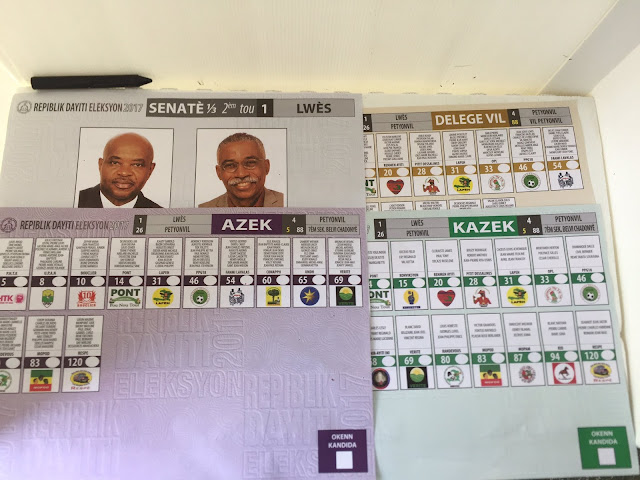P-a-P Mayor Proposes $510M[USD] Housing Project

PORT-AU-PRINCE - A $510 million [USD] project was presented by the Mayor of Port-au-Prince on Monday at the Karibe Convention Center. "The proposal is to transform the bidonvillisées are, devestated by the earthquake into a safe habitat," the Mayor Jean Yves Jason Muscadin told attendees.
The project would cost $510 million [USD], according to the dossier given to the participants, including the President-elect, Michel Martelly.
Details
- 14,500 Two Story Apartments
- 1,356 Three Story Apartments
- 12,304 Four Story Apartments
- 72,500 Population Capacity
- $435,000,000 Cost of Construction
- $30,000,000 Cost to Acquire 61 hectares
- $20,000,000 Cost to Clear Area
- $25,000,000 Cost of Highways and Networks
The realization of this project will depend on the willingness of the next Government. Present at the presentation was President-elect Michel Martelly.
Martelly welcomed the mayor's initiative and expressed his support for this project "I think it was important that I take note of this project, so I can better understand what is being done here, to be imbued with what is happening, to support the Mayor in his approach, it seems that there is more than one mayor in this project since we are talking of the littoral up to Carrefour, we speaks of Cité Soleil."
He continued, "but the essential is that in the reconstruction, we all agree on is what will be done... it is very important that we begin to identify the funds at the project level... I will walk with everyone to support them, facilitate the disbursement of funds and find them, so that we can remove people from under the tents and we rebuild Haiti..."
More Cooperation
The President-elect also stressed the importance of the inclusion of stakeholders to obtain funding.
The City Hall of Port-au-Prince is working to include its sister cities and cities throughout the world. "We have the expertise and funding of our cities sisters in decentralized cooperation such as Montreal, Miami, Montevideo, Milan, Paris, La Rochelle, Bamako, Mexico, etc.", said Mayor Jason.

The city of Montreal answered the call. City of Montreal Representative, Michelle Picard, was present at the presentation of the Carrefour-Feuilles project. Montreal is also the city that introduced the project for the "institutional strengthening" of the municipality of Port-au-Prince.
It had been a five-year project but was reduced to two years, following the earthquake of January 12, 2010. "We want to help Port-au-Prince be more efficient in its management," said Ms. Picard adding that Montreal intends to equip and train technicians to be used at the disposal of the local government.
In the meantime to identify the sources of funding for the project of Carrefour-Feuilles, Mayor of Port - au-Prince seeks to harmonize its relations with NGOs working in the area. Most of them, including UN agencies, Oxfam and Architect of the emergency, were present at the meeting on Monday. They asserted their willingness to work together with the Town Hall, to improve the living conditions of the inhabitants of Carrefour-Feuilles. This could in the long run avoid duplication of projects of NGOs in the area as is the case in the field currently.
Too massive?
Critics of the proposal cite that the project is "too massive." They contend that not only will a project this massive be difficult to fund but may ultimately damage the economy, real estate market and cause a tremendous decline in property values.
One critic, who asked not to be named, said of the project "it's way too big, man. 72,000 people? There are cities that don't have 72,000 people now we're talking about building a multi-level community... it sounds like the projects."
The undisclosed critic said with this amount of uniformity "only one company is going to get the contract for that job and guarantee it won't be Haitian. A half-billion dollars!"
"They should give individuals and businesses access to subsidies and vouchers so they can build their homes or their communities how they want it. If the properties aren't diverse in value, the overall property value will decline, just like the projects," he continued.
A community is a good idea is what everyone seems to agree with, but the size of the project is what has economists worried. They say it would be a loss of a great opportunity to build individual families, businesses and the overall economy, if that kind of money is awarded to a single entity, to create on uniformed project.
Diversity, competition is key to a strong economy.






Comments
Post a Comment